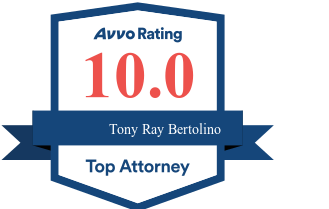Hospitals use peer review to evaluate a physician’s care, conduct, and competence. However, these reviews can turn adversarial fast and lead to long-term damage.
At Bertolino LLP, we represent doctors across Texas facing internal investigations and licensing consequences. A physician peer review lawyer can step in before the situation escalates.
A physician license defense lawyer can help you respond clearly, assert your rights, and protect what you’ve worked hard to build. These cases can move quickly and have broader consequences, including repercussions with licensing boards, data banks, and future employers.
What a Peer Review Means for Texas Physicians
Peer review doesn’t stop at the hospital. In Texas, adverse findings often trigger reports to the Texas Medical Board. That can initiate a formal investigation and disciplinary process that affects your ability to practice statewide and may jeopardize your entire career.
A Texas medical license defense lawyer can intervene before things escalate. Our team examines the details, reviews hospital bylaws, interviews witnesses as needed, and challenges flawed procedures or biases that can unfairly shape the outcome.
Many doctors are unaware that even a short-term privilege restriction can result in a report to the National Practitioner Data Bank (NPDB). That record may follow you for years, across employers, states, insurance plans, and credentialing bodies.
When to Call a Peer Review Attorney in Texas
If you receive notice of a peer review hearing, don’t wait. Too many physicians try to explain things informally or hope it will blow over. It won’t, and every word or document you submit may be used to justify action later.
A physician peer review attorney helps you prepare before you speak. They know what the committee looks for, how to challenge procedural missteps, and how to keep the scope of the review narrow and focused on facts.
Early involvement can help you avoid long-term damage to your record. Even if you’ve already gone through the process, an attorney may still help you challenge the findings, correct the record, or mitigate the consequences.


Common Reasons for Peer Review Action in Texas
Peer review committees often begin with a complaint, but the underlying issues vary. We’ve seen cases sparked by legitimate concerns—and others driven by internal politics or retaliation.
Issues that often trigger peer review:
- Surgical complications or outcomes under review
- Disputes with staff or patient communication complaints
- Alleged disruptive behavior in clinical meetings
- Improper charting or incomplete records
- Allegations of substance use or impairment
- Claims of unprofessional conduct or harassment
- Patient privacy violations or HIPAA concerns
Some reviews arise after years of clean practice. That’s why strong legal representation matters. An attorney can examine whether the process is fair or being used against you.
Click to contact our Physician License Defense Lawyers today
What Happens After Peer Review Findings
Peer review decisions don’t always stay private. Hospitals must report certain adverse actions, including suspensions longer than 30 days, to the National Practitioner Data Bank. That report becomes visible to licensing boards, insurers, and future employers.
You may also face:
- Loss or limitation of privileges at the hospital
- Termination of staff appointments or contracts
- Reporting to the Texas Medical Board for further investigation
- Trouble renewing credentials with health plans
- Long-term damage to your reputation and earning capacity
A physician peer review attorney helps contain the fallout and guides you through what must be disclosed, what can be appealed, and how to move forward without surrendering your professional standing.
Complete a Case Evaluation form now
How a Peer Review Lawyer Protects You
A physician peer review lawyer works behind the scenes and by your side. This includes:
- Reviewing the allegations and committee procedures
- Challenging improper processes or rushed timelines
- Helping you prepare written responses and hearing statements
- Attending the hearing and advising on how to respond
- Preparing rebuttals to NPDB entries or board inquiries
- Advising you on credentialing disclosures and legal exposure
You don’t have to guess what to say or what could hurt your record. We guide physicians through every step with a clear and strategic approach.
Know Your Rights Under Hospital Bylaws
Each facility in Texas must follow its own bylaws when conducting peer review. These rules often define timelines, notice requirements, and your right to respond or appeal.
When a hospital doesn’t follow its own process or cuts corners, you have legal grounds to challenge the review. We help physicians hold committees accountable to the rules they set.
You have the right to:
- Review the allegations in full
- Respond in writing and in person
- Bring an attorney to the hearing
- Receive notice of decisions and next steps
- Appeal or request further review when allowed
We ensure that your rights are not overlooked or rushed away under the pressure of internal politics.
What If You’ve Already Been Reported?
Even if the review has already happened, you still have tools to manage the consequences. We work with physicians after adverse decisions to help:
- Appeal within the hospital system if timelines allow
- Submit rebuttals to the NPDB or request corrections
- Respond to inquiries from the Texas Medical Board
- Create written explanations for credentialing applications
- Prepare for job interviews or renewals with confidence
Peer review doesn’t have to define your future. With the right legal support, it becomes one chapter, not the final one.
Protect Your License with a Physician Peer Review Lawyer
Peer review investigations move fast, and the consequences last. A single decision can lead to license restrictions, NPDB reports, and long-term damage to your name and career. You need more than general advice. You need a plan that fits your situation.
At Bertolino LLP, we’ve spent over 20 years helping licensed professionals protect their livelihood. We understand how peer review committees operate and how their findings can impact board action, credentialing issues, and public records. We take the time to examine the full picture and prepare a clear, aggressive response.
Contact us today to speak with a physician peer review lawyer who will take your case seriously. We represent doctors across Texas facing internal investigations and license threats. To schedule a confidential consultation, please contact our Client Success Liaison.
Call or text (512) 476-5757 or complete a Case Evaluation form


















